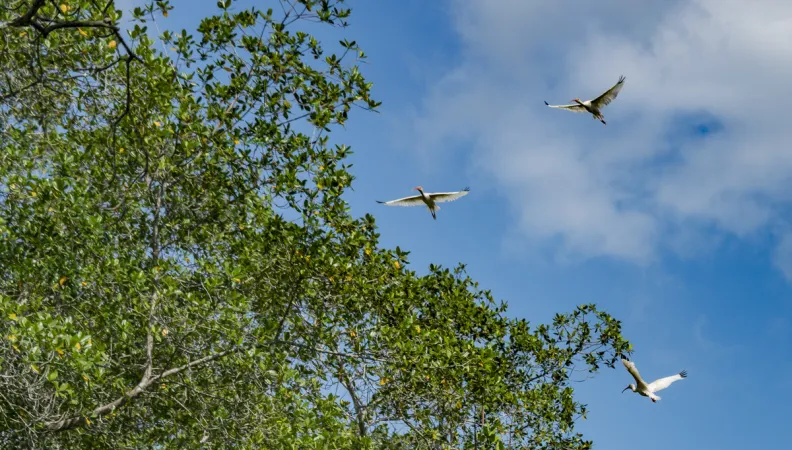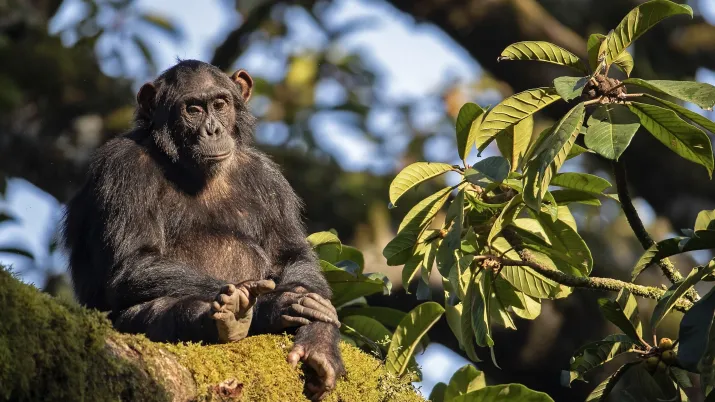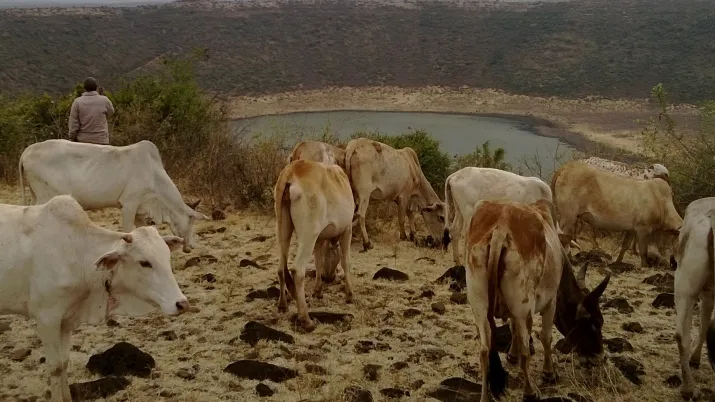Share the page
Sébastien Treyer: “The crisis is pushing us to search for an ever-wider transformational impact.”
Published on

Sébastien Treyer, President of the FFEM’s Scientific & Technical Committee and also Director General of the French Institute for Sustainable Development and International Relations (Iddri), considers the impacts of the COVID crisis. Lessons learned from FFEM projects could be applied both to prevent the risk of new pandemics and to increase the resilience of people and régions.
What is the impact of the COVID crisis on projects supported by the FFEM?
Sébastien Treyer: Admittedly, this interruption to whole swathes of global activity has temporarily cut greenhouse gas emissions, pollution and the effects on ecosystems. But globally where the FFEM is active, we have seen how the crisis has clearly weakened the sustainable development dynamic to which we are committed.
Firstly, it’s put pressure on natural resources and biodiversity. During the confinement, protected areas have been less well monitored and incomes have fallen. That’s the case in the Sahel with the Ressource project, or in Uganda with the FoFauPopu project. We’ve seen a resurgence in poaching and the consumption of less sustainable bushmeat. Restricted movements have hindered pastoral migration, such as in Senegal, in the Ega-Egga project, leading to over-cultivation and degradation of the soils and natural forage resources.
We’re also seeing project deployment being slowed by funding constraints. Faced with uncertainty, some investors are holding onto their money. In a number of regions, particularly in rural areas, environmental protection goes hand-in-hand with the diversification of the economy and revenue streams. One example is ecotourism in protected areas, and here the future is very uncertain. Then there are problems with the supply of equipment and with sales outlets (the closure of local and international markets) is slowing the execution of projects and raises the spectre of lost income for many people.
What should be done to limit these effects? What lessons can you draw from the crisis itself?
Firstly, as regards preventing the risk of new pandemics, we see that protecting biodiversity reduces risks to health, even where such reduction is not the primary objective. By minimising contact between wildlife, livestock and people, the systems of connected protected areas and ecological corridors limit the emergence of these diseases. That’s the case, for example, in the community conservancies in Northern Kenya. In addition, raising awareness of sustainable agricultural, fishing or food gathering practices by providing food security for local populations, limits poaching and the consumption of bushmeat as well as other ecosystem damage such as land clearance. Also, a concerted regional approach, particularly for agricultural or forest regions, helps minimise interspecific interactions. The Northern Congo forests project, co-funded by the FFEM and AFD, is supporting just such sustainable management.
Another big issue is that in order to make populations and regions more able to handle crises such as this, the FFEM has for a long time supported development rooted in a rationale of resilience and economic diversification, which has in some cases allowed the crisis to be better survived. Structuring networks to operate more effectively from an environmental perspective can also pave the way to more rewarding markets, limiting the loss in income. For example, in Benin the company Tolaro has developed a business in sustainably processed cashew nuts. While there may be difficulties finding sales outlets, these can be stored, unlike the raw nuts which can deteriorate over time.
Also, the integration into urban spaces of nature-based solutions can increase regional resilience, as has been seen for example in Santa Fe, Argentina. Thanks to these urban gardens, vulnerable populations do better when confronted by economic shocks which will often result in sharp rises in food prices.
How can the FFEM adapt to be better able to respond to such crises in the future?
The FFEM - without being the only funding partner in this situation - hadn’t anticipated such massive fallouts. However, while listening to its beneficiaries it has already been able to adapt and demonstrate its flexibility. Some activities have been scaled back or developed, and perhaps have had their geographical scope revised, new activities have been proposed, or complementary funding granted.
Beyond this necessary adaptation on the ground, the FFEM must ask itself serious questions about new challenges in a world transformed by the crisis. For 25 years it has been working to prevent some of the identified causes of the pandemic, whether through the One Health approach, nature-based solutions or the circular economy. It is already able to deliver paths to a sustainable recovery.
But the crisis is pushing us to search for an ever-wider transformational impact. That will be through stronger collaboration with local stakeholders - public, private, civil society and local people - and enhanced efforts to escalate them. We will also be able to further build on our integrated approach to these topics - climate, biodiversity, soil degradation, pollution etc. - while re-affirming our inclusion of the Sustainable Development Goals (SDGs) in each project. The challenge is in attaining a systematic dimension to this approach that runs through societies, lifestyles, economic activities and public policy. Government responses to escaping the crisis are - quite justifiably - centred around the urgency of economic recovery and jobs. The FFEM can explore solutions that allow us to simultaneously restore employment and protect the environment, in line with a Build Back Better rationale.
Further reading

A LOOK AT THE INNOVATIVE NATURE OF ‘PROJECT RESSOURCE’ WITH CONSTANCE CORBIER-BARTHAUX
Published on october 28 2019


